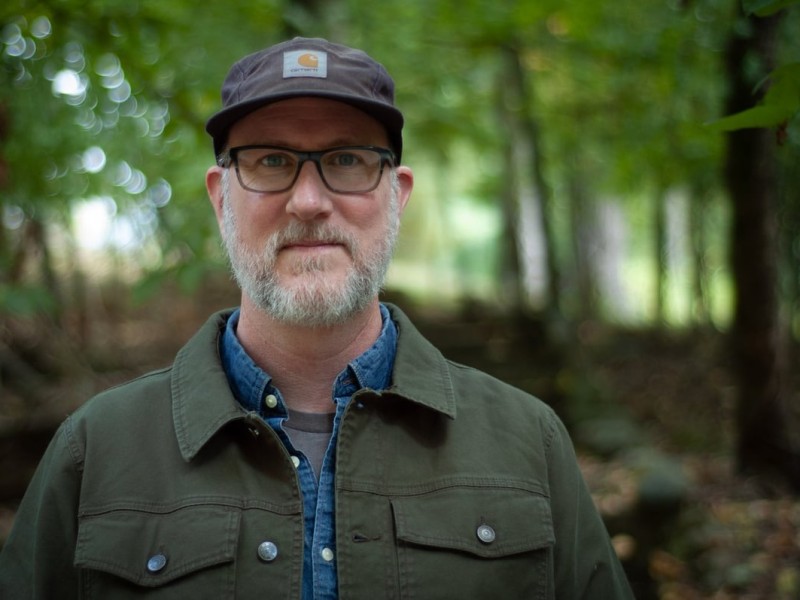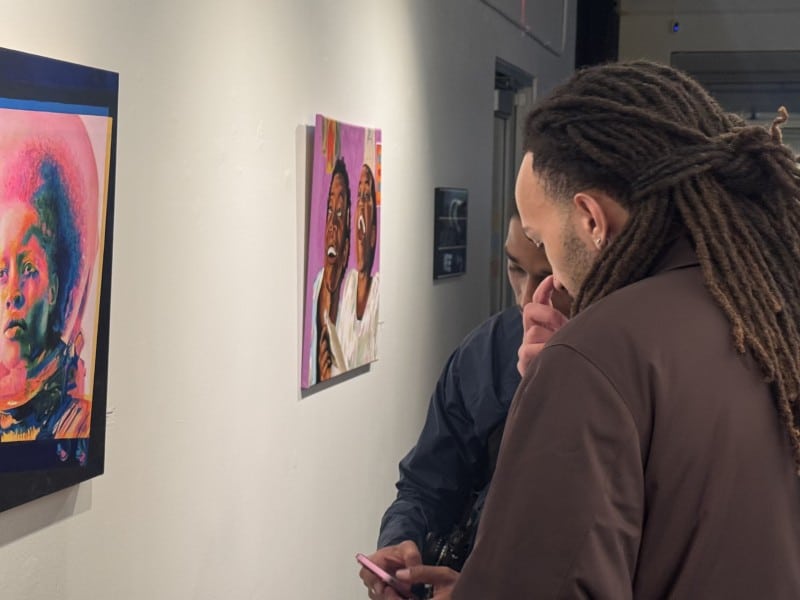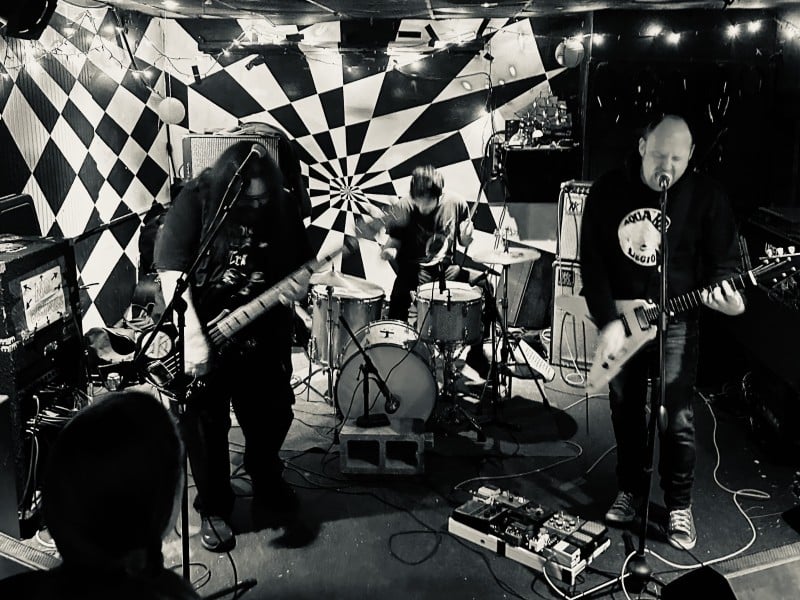Brian Harnetty keeps the gift in motion with ‘The Workbench’
The sound artist recently teamed with members of the Unheard-of//Ensemble to craft a piece in memory of his late father, which the collective will debut at Short North Stage on Tuesday, Nov. 7.

In the weeks and months after his father died in October 2021, Brian Harnetty would visit his mother in the home his parents once shared. Once there, he would inevitably spend time seated at his dad’s workbench – a space that continued to reverberate with the elder’s presence even after his death.
“When I was a little kid, it was my favorite place to go. It’s shabby and orderly at the same time, and it worked just for him, where everything was right at arm’s reach,” said Harnetty of the workbench where his dad would sit for hours on end, repairing manual typewriters, radios and other electronics. “There’s nothing special about it. I mean, the workbench isn’t expensive, and the objects on it aren’t extremely valuable money-wise. But when you look at it top-down, there are so many paint marks and splatter marks and places where he’s drawn on it. You could see parts of his mind ingrained in the wood … and tease out parts of his personality.”
In the hours Brian Harnetty spent seated at this workbench, which he described as intrinsic to the grieving process, he began to weigh concepts that included the passage of time, the inevitably of death, and the power of inherited objects, which can carry trace elements of the past capable of spinning one backwards in time. Harnetty, for one, recalled the sense of wonder and play he once felt while sitting at the workbench as a child, and how aspects of that returned when he again spent time with it as an adult.
These ideas and more form the backbone of “The Workbench,” a sonic portrait Harnetty crafted in memory of his late father, Paul Harnetty, and which he’ll perform alongside members of the Unheard-of//Ensemble in a free concert at Short North Stage on Tuesday, Nov. 7. (Encore performances are also scheduled to take place this week in Athens, Ohio, and New York City.)
Harnetty, a sound artist and composer, has frequently embedded his work with archival recordings, taking the voices of the coal miners, shopkeepers and community organizers who have lived and worked in Appalachia and placing them in new context.
He takes a similar approach to “The Workbench,” weaving in voicemails left by his dad that might have seemed unremarkable at the time, but which take on greater resonance accompanied by Harnetty’s piano and the elegiacal string arrangement courtesy Unheard-of//Ensemble. “We just went out for a long walk, and we finally got back before the rain comes,” Harnetty’s dad says in one recording. “So, thanks for calling, and we’re fine, and I hope you’re fine, too. Bye-bye.”
“When someone’s gone, and you’re a person who focuses on sound recordings, you want to preserve those as quickly as possible,” said Harnetty, who also recorded a series of interviews with his father in the final months of his life as a means of holding and preserving his stories. “But I didn’t use a lot [of material] from those, and instead I focused on the voicemails, because I felt they had a certain poignancy to them. A lot of the everyday phrasing he used became poetic. When he says they got in ‘before the rain comes,’ it feels like poetry to me.”
While “The Workbench” shares DNA with recordings Harnetty has made in the past – centering the voice and story of a blue-collar Appalachian – it’s easily his most intimate composition, drawing back the veil in ways that can be gutting. As the piece closes, for instance, Harnetty layers in a recording taken of his father sleeping and breathing in hospice, which has the effect of drawing the listener right up to his death bed.
“I think middle-age has something to do with it, and then going through the stages of grief around the death of your father has a lot to do with it,” Harnetty said of the more personal turn. “Losing your dad also forces you to contend with your own mortality. When I was younger, it was easy to push it off. And not to be too heavy, but my wife and I have a child, and it’s just the time of life where because of the concreteness of if all you don’t want to sweep it under the rug. And I think that’s it. I think I want to keep acknowledging [death] as a part of the human process, and I have the instinct to turn that into some kind of art.”
Harnetty initially viewed his career as a composer and sound artist as somewhat detached from his dad’s work repairing typewriters. But the composer said he’s recently begun to appreciate that some through line between the two might exist, with Harnetty helping to tell the kinds of stories the machines repaired by his father once would have been instrumental to documenting.
“He was definitely a tinkerer and an inventor when it comes to mechanical things, and I like to think I’ve inherited some of those qualities, too. Only I’ve placed them in the realms of writing and music and sound art and so forth,” said Harnetty, who traced further influence to having grown up surrounded by the relentless click-clack of manual typewriters. “Even being around all of those mechanical sounds, those have played a huge part in my recorded life. And then also the idea of history and trying to think back to the past through objects.”
While “The Workbench” carries the weight of loss, the piece is also infused with moments of joy. And Harnetty describes the overriding mood as one of “happy melancholia,” meant not only to memorialize his father’s death but to celebrate his memory.
A similar transformation has started to take place with the workbench itself in the months since Harnetty moved it into his home, with the piece becoming less of a shrine to his departed father and more of a living, breathing tool in the hands of Harnetty’s teenage son.
“He almost immediately started to use the workbench to repair electric guitars,” Harnetty said. “And it just felt like, of course. This thing is not in a museum. It’s not supposed to be put up on a shelf. It’s actually in use, as it should be.
“It kind of goes back to that old story that I’m very fond of by Lewis Hyde called ‘The Gift.’ And his whole argument was that gifts only keep their power when they are in exchange, and when they’re in movement and being used and shared. And so, if I see the inheritance of this workbench as a type of gift, seeing my son make use of it is keeping it in exchange. But also, making a piece called ‘The Workbench’ is another type of way of putting that gift in motion, of making sure it’s shared.”




